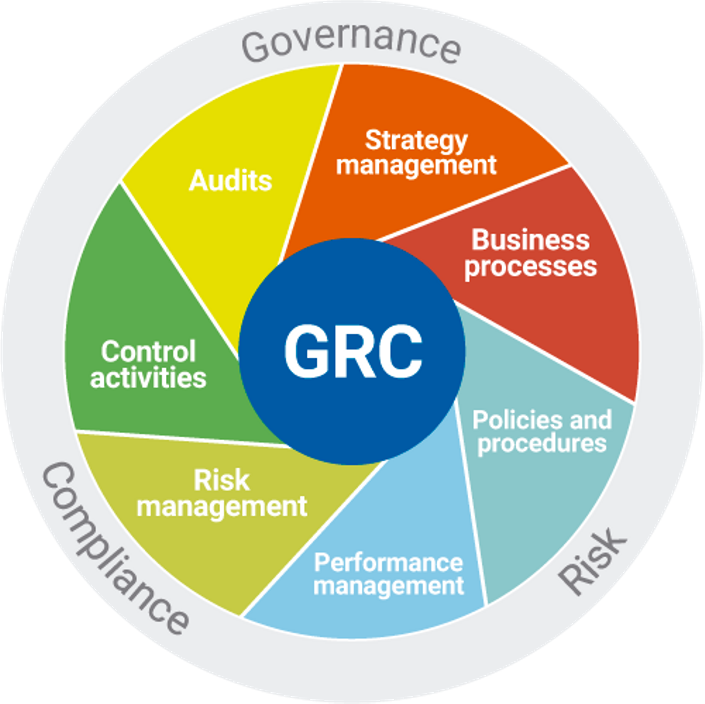Cybersecurity Career Paths: Compliance
When pursuing a cybersecurity career, the possibilities are vast.
One pathway that holds immense potential for growth is the realm of Compliance and Governance, Risk, and Compliance (GRC). What makes this path great, is that it could potentially be a great way to get your start into Cybersecurity.
Let's look into this career path and understand how a day in the life of a Compliance and GRC professional looks like.
The Role of Compliance in Cybersecurity
In the complex world of Cybersecurity, Compliance professionals play a critical role. They ensure that an organization aligns with all security regulations, working meticulously to comprehend these regulations' requirements and developing and implementing security controls to meet them.
Given the global nature of many businesses today and the ever-changing landscape of cybersecurity regulations, the role of Compliance professionals is vital due to the potentially severe legal and financial consequences of non-compliance. It's their responsibility to navigate the intricate maze of rules, ensuring that their organizations are always on the right side of the law.
What is GRC?
GRC stands for Governance, Risk, and Compliance - three areas that go hand in hand with each other.
An Information Security Governance, Risk, and Compliance (GRC) Specialist is a role within this realm that focuses on ensuring a company's information security policies and procedures are in compliance with regulatory requirements.
A Day in the Life of a GRC Specialist
The role of a GRC specialist varies widely depending on the organization, but here's a snapshot of some typical duties and responsibilities:
Implementing Security Controls and Risk Assessment Frameworks
Monitoring Information Security Controls
Conducting Security Reviews & Assessments
Reporting on Control Failures
Now let’s dive deeper into this sample job description.
Implementing Security Controls and Risk Assessment Frameworks: GRC specialists develop and implement security controls that align with regulatory requirements, such as SOX or GDPR ensuring sustainable compliance that furthers business objectives. They also evaluate risks and formulate security standards and procedures to manage them.
Monitoring Information Security Controls: They use GRC processes to automate and continuously observe information security controls, exceptions, and risks. They also develop reporting metrics, dashboards. For example, ensuring that a vendor they are in contract with is meeting the security controls agreed upon.
Conducting Security Assessments: GRC specialists perform and investigate internal and external information security risk assessments. They assess incidents, vulnerability management, patching status, penetration test results, and phishing/social engineering tests and attacks. The goal is to assess where there were shortcomings.
Reporting on Control Failures: They document and report control failures and gaps to stakeholders, providing remediation guidance and preparing management reports to track remediation activities.
These were taken from actual job descriptions, so you can be sure they reflect what is expected in the real world.
Key Skills and Qualifications
A career in Compliance and GRC requires a particular set of skills and qualifications. Relevant experience can sometimes substitute for the degree requirement. Years of applied work experience in cybersecurity programs, audits, assessments, risk, remediation, or cybersecurity compliance management can also be required.
GRC professionals need a solid understanding of information security management, governance, and compliance principles, laws, rules, and regulations.
Skills in developing and implementing enterprise governance, risk, and compliance strategy and solutions are also crucial. Importantly, they must have the ability to communicate technical issues to diverse audiences, both in writing and verbally, apply a risk-based approach to planning, executing, and reporting on audit engagements and auditing processes, and handle sensitive and confidential matters, situations, and data.
Conclusion
The world of Compliance and GRC is complex, challenging, and rewarding.
If you are detail-oriented, have a knack for understanding complex regulations, and enjoy strategizing, a career in Compliance or GRC might be a perfect fit for you.
While the road to these roles may seem challenging, the impact you can make on an organization's security posture makes it worthwhile. Keep learning, stay updated, and you will find your niche in this ever-evolving field of cybersecurity.
This concludes the 5 part Cybersecurity Career path series, I hope this helped in providing clarity for your Cybersecurity journey.




